Garlic is key, and better to leave aside the sole.
03.08.2025 18:19 — 👍 1 🔁 0 💬 1 📌 0aphelis
@aphelis.net.bsky.social
https://aphelis.net/
@aphelis.net.bsky.social
https://aphelis.net/
Garlic is key, and better to leave aside the sole.
03.08.2025 18:19 — 👍 1 🔁 0 💬 1 📌 0
Digital facsimile of a postcard from Gershom Scholem to Walter Benjamin, with the poem “Greeting from Angelus” dated July 15, 1921
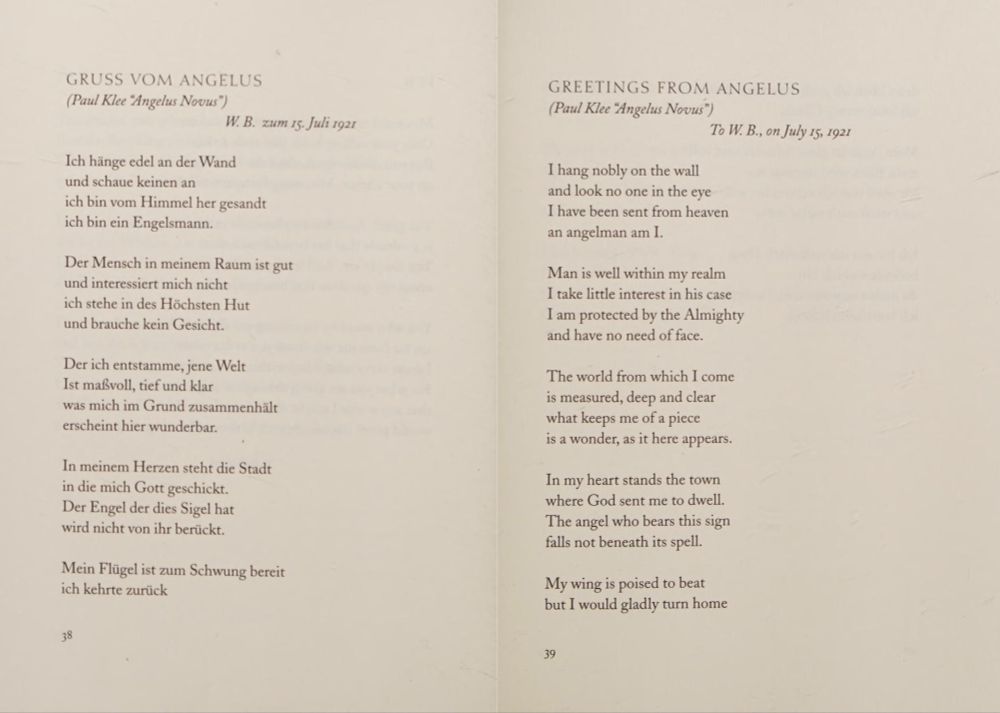
Gershom Scholem, “Greetings from Angelus” to Walter Benjamin, July 15, 1921 I hang nobly on the wall and look no one in the eye I have been sent from heaven an angelman am I. Man is well within my realm I take little interest in his case I am protected by the Almighty and have no need of face. The world from which I come is measured, deep and clear what keeps me of a piece is a wonder, as it here appears. In my heart stands the town where God sent me to dwell. The angel who bears this sign falls not beneath its spell. My wing is poised to beat but I would gladly turn home were I to stay to the end of days I would still be this forlorn. My gaze is never vacant my eye pitchdark and full I know what I must announce and many other things as well. I am an unsymbolic thing I mean what I mean you turn the magic ring in vain there is no sense to me.
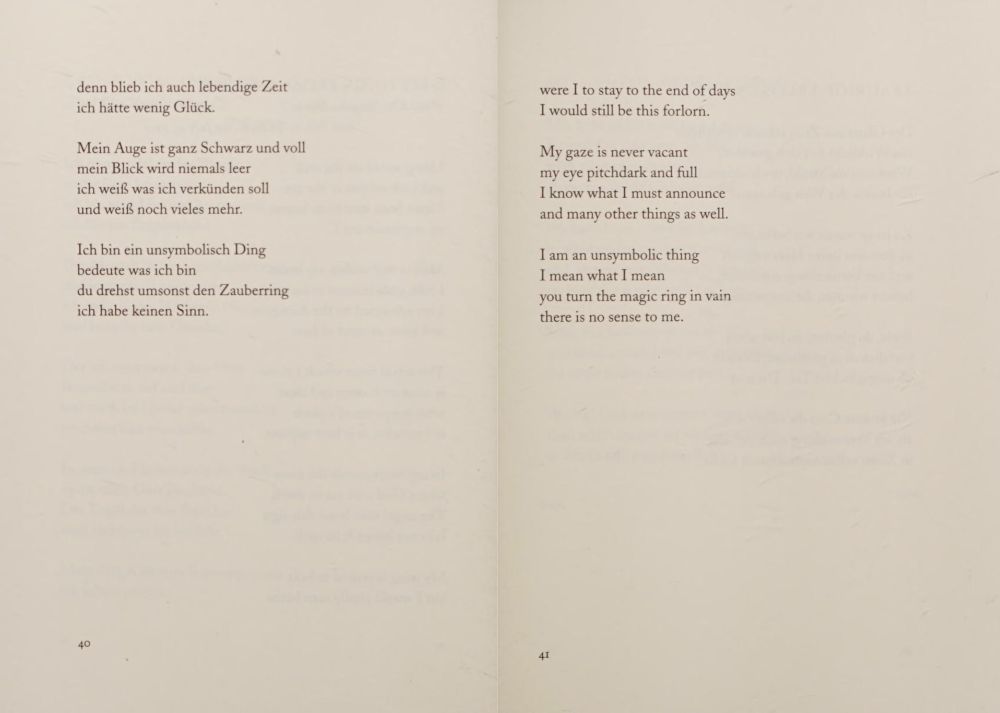

Paul Klee, Angelus Novus, 1920
“My gaze is never vacant
my eye pitchdark and full
I know what I must announce
and many other things as well
I am an unsymbolic thing
I mean what I mean
you turn the magic ring in vain
there is no sense to me”
— Gershom Scholem to Walter Benjamin, July 15, 1921
archive.org/details/gree...
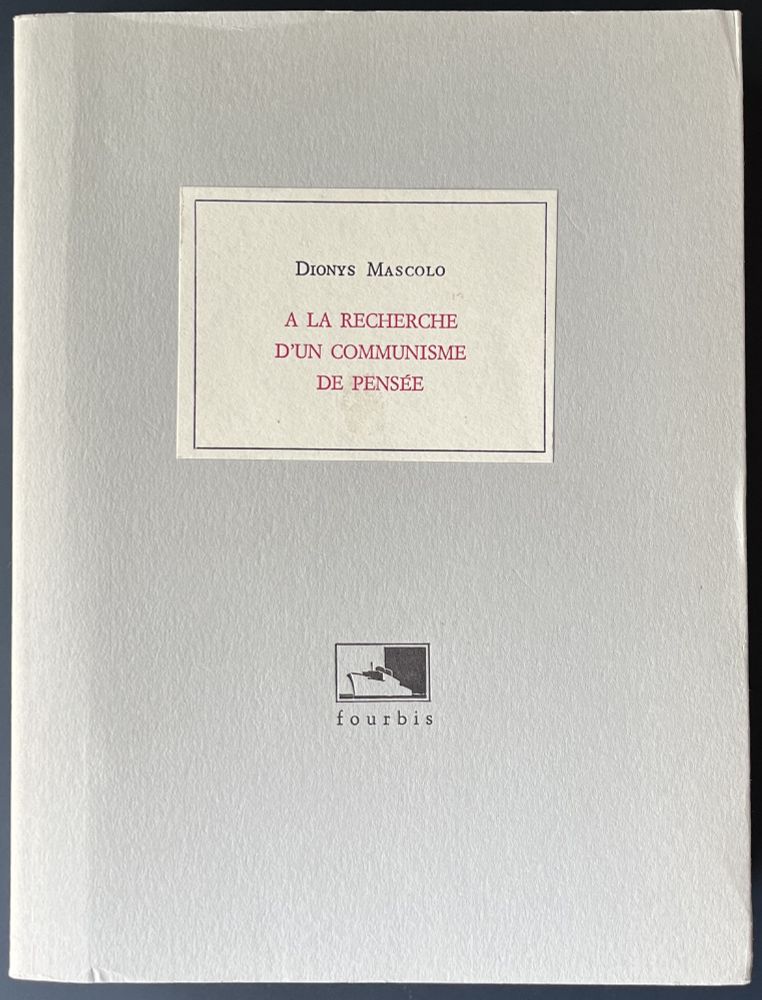
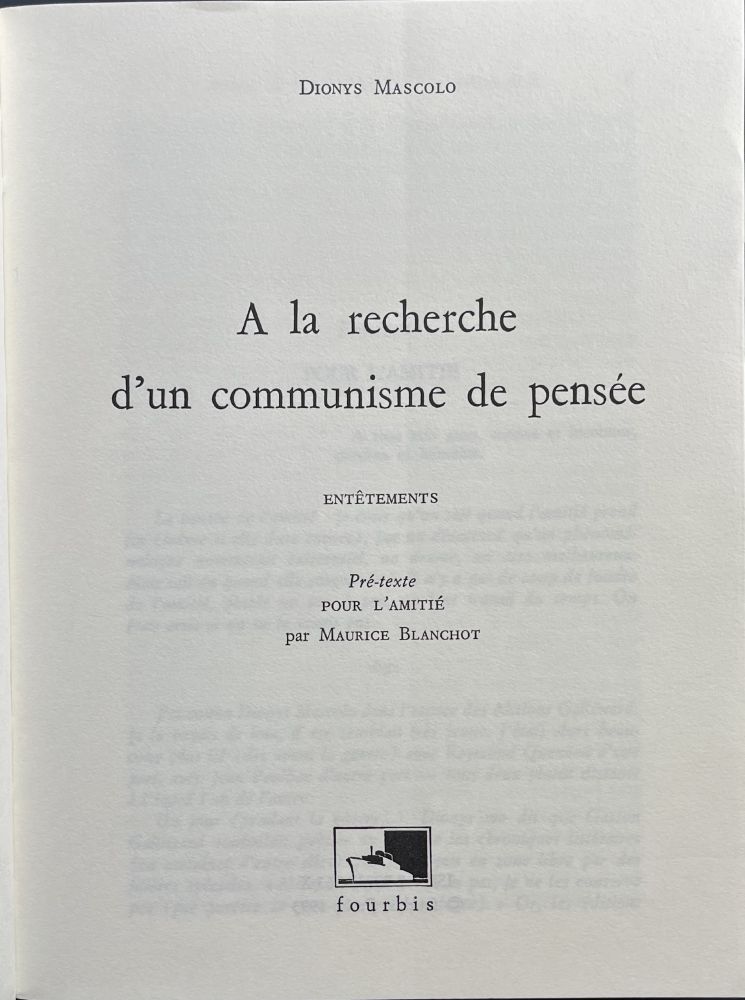

Extrait de “Haine de la philosophie,” interview avec Dionys Mascolo par Jean-Marc Turine, La Revue nouvelle. 1994, Vol. 99, No. 4, pp. 88-92 «R.N. : Pour ce livre aussi vous donnez un sous-titre, «Entêtements». D.M.: Je veux dire que ce ne sont pas des pensées de type philosophique dictées par des concepts de la logique. C'est un mélange d'intuitions, d'aperçus, d'hypothèses, tous hasardeux, incertains, qui, peu à peu, par leur permanence ou leur répétition, finissent par entrer dans la tête, finissent par vous «entêter» et par devenir l'équivalent de «pensées», mais qui à l'origine n'étaient pas des pensées, mais des humeurs, des révoltes, des dégoûts, des désirs.»
Dionys Mascolo sur le sens du sous-titre («Entêtements») donné au livre 'À la recherche d’un communisme de pensée' (Paris: Fourbis, 1993).
— «Haine de la philosophie», entrevue par Jean-Marc Turine, La Revue nouvelle, 1994, Vol. 99, No. 4, pp. 88-92
aphelis.net/wp-content/u...
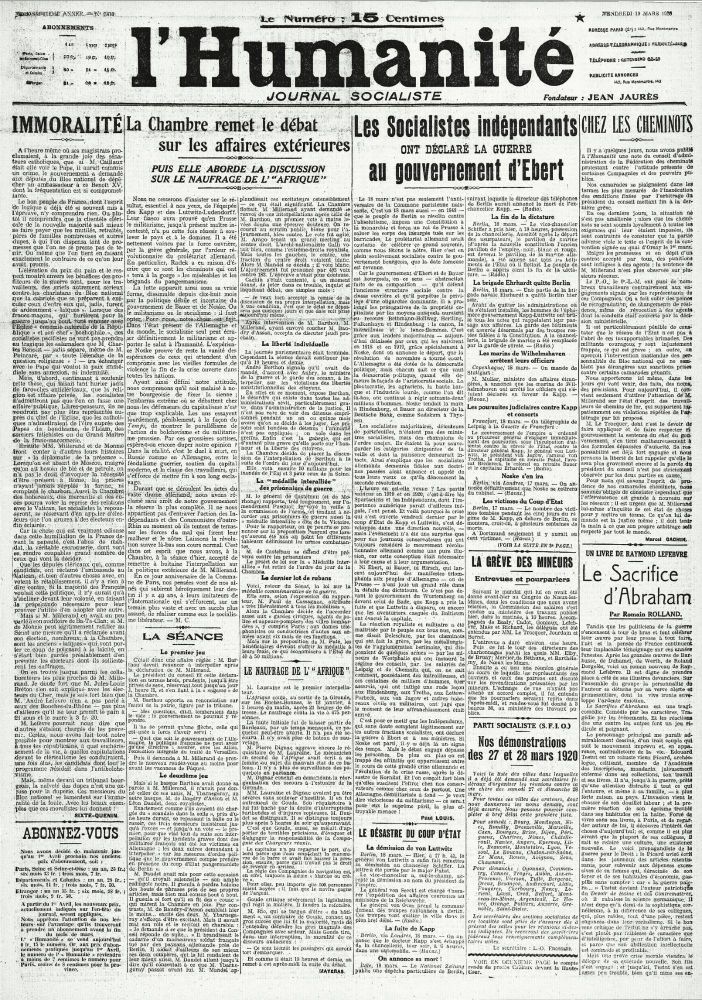
Première page du journal français L’Humanité, 19 mars 1920, où commence la recension qu'offre Romain Rolland du livre de Raymond Lefebvre «Le sacrifice d'Abraham»
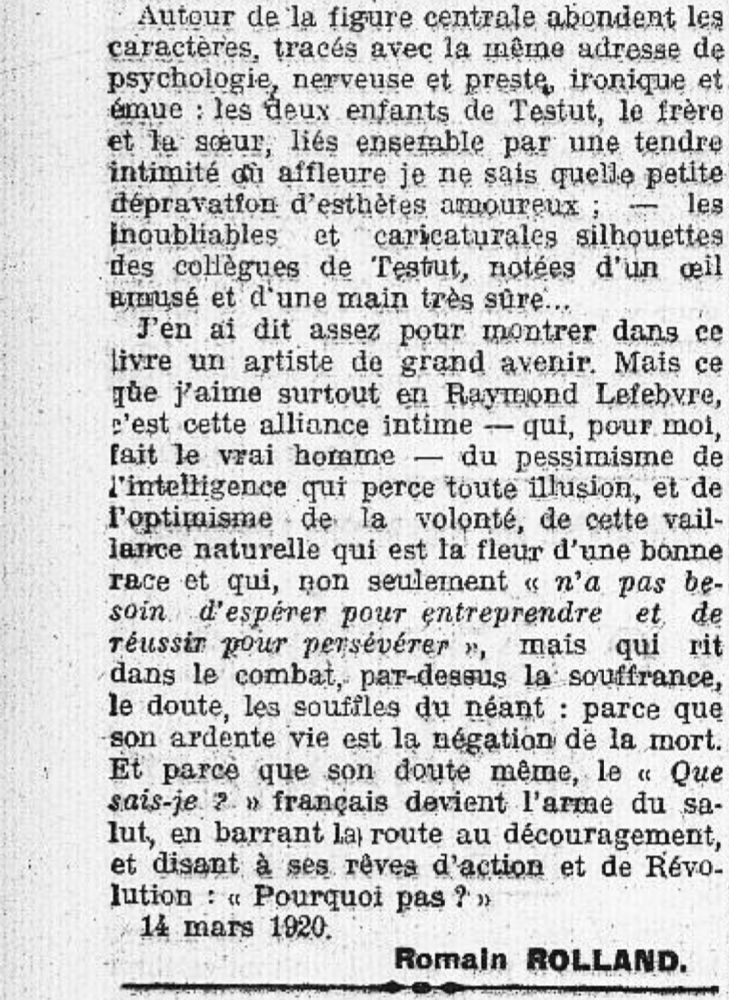
Extrait de la recension du roman de Raymond Lefebvre, où Romain Rolland introduit la remarque qui sera reprise et rendue célèbre par Gramsci: «Mais ce que j'aime surtout en Raymond Lefebvre, c'est cette alliance intime – qui pour moi fait le vrai homme – du pessimisme de l'intelligence qui perce toute illusion, et de l'optimisme de la volonté...»
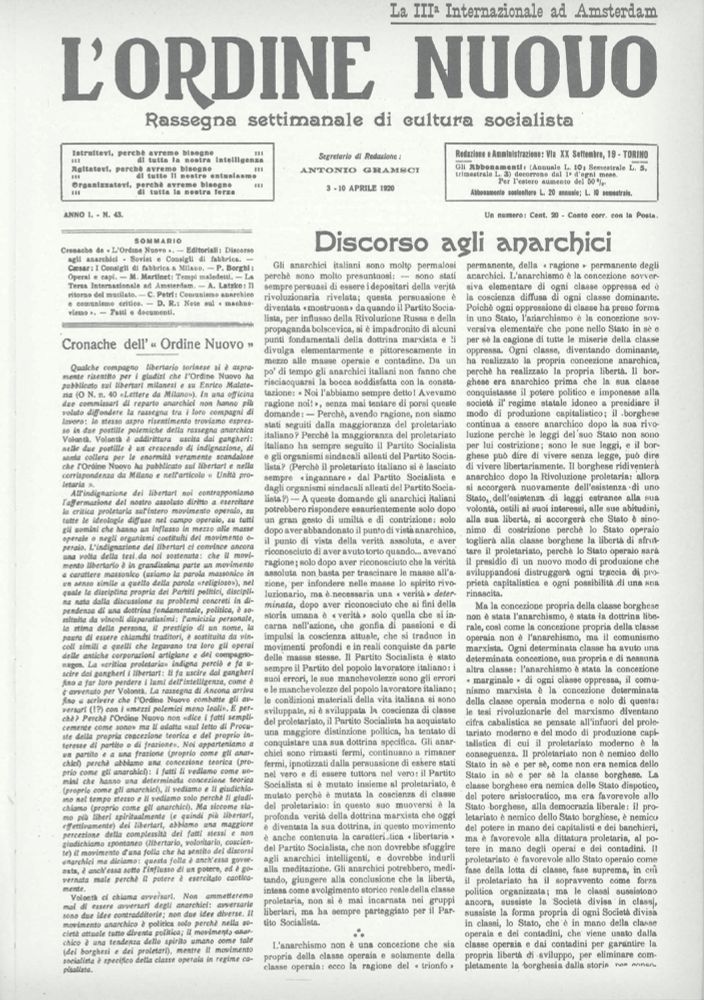
Première page du journal italien L’Ordine Nuovo, du 3-10 avril 1920, où commence l'essai de Antonio Gramsci intitulé «Discorso agli anarchici» où il reprend pour la première fois l'expression de Romain Rolland (qu'il lui attribue explicitement).
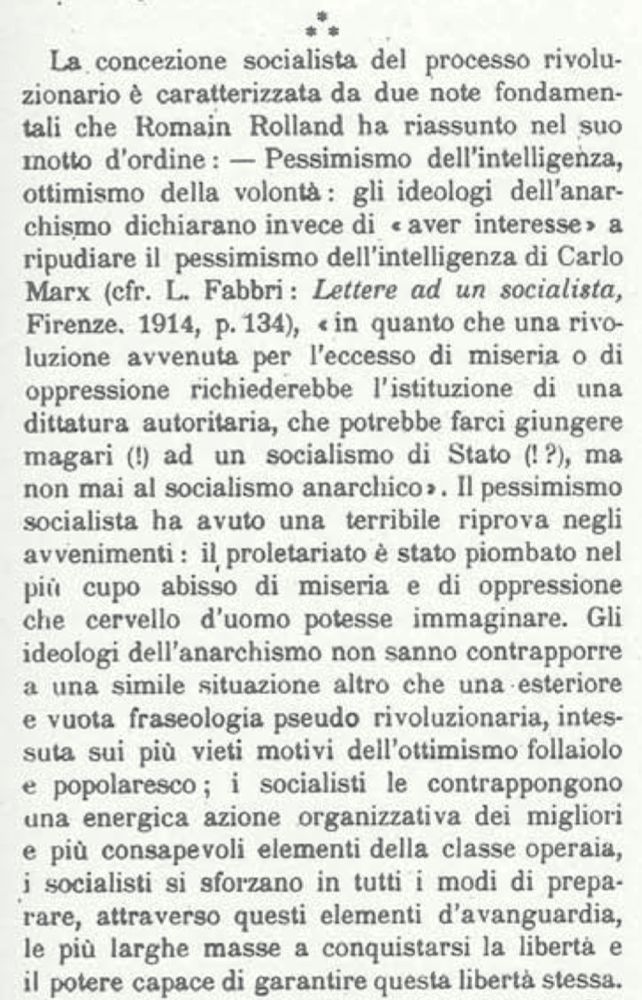
Antonio Gramsci: «La concezione socialista del processo rivoluzionario è caratterizzata da due note fondamentali che Romain Rolland ha riassunto nel suo motto d'ordine: — Pessimismo dell'intelligenza, ottimismo della volontà...»
“Pessimismo dell'intelligenza, ottimismo della volontà”
— R. Rolland, «Le Sacrifice d’Abraham: un livre de Raymond Lefebvre», L’Humanité 19 mars 1920: 1-2
gallica.bnf.fr/ark:/12148/b...
— A. Gramsci, “Discorso agli anarchici,” L’Ordine Nuovo, 3-10 avril 1920: 339-340
archive.org/details/Ordi...

René Daumal
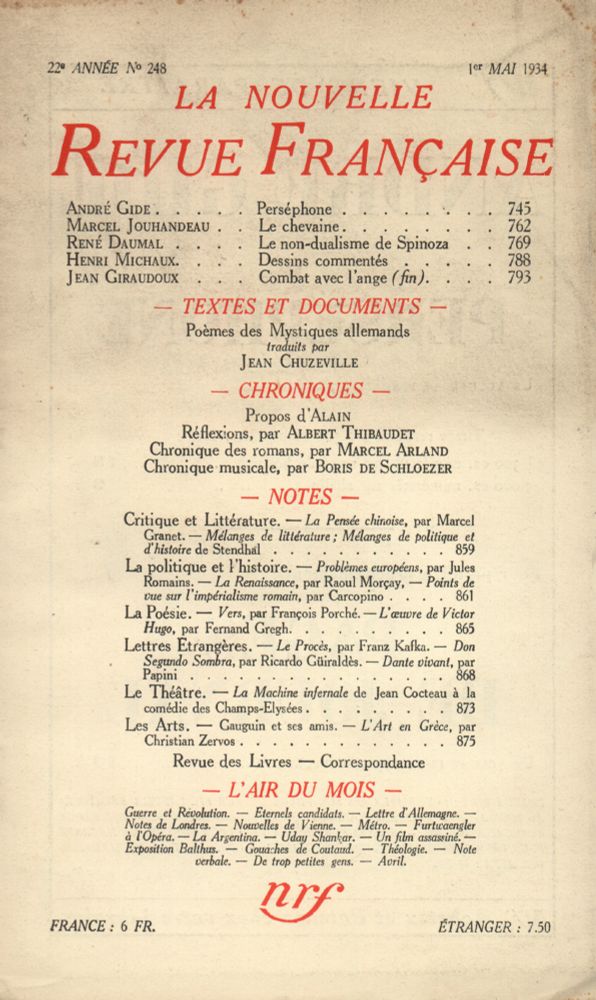
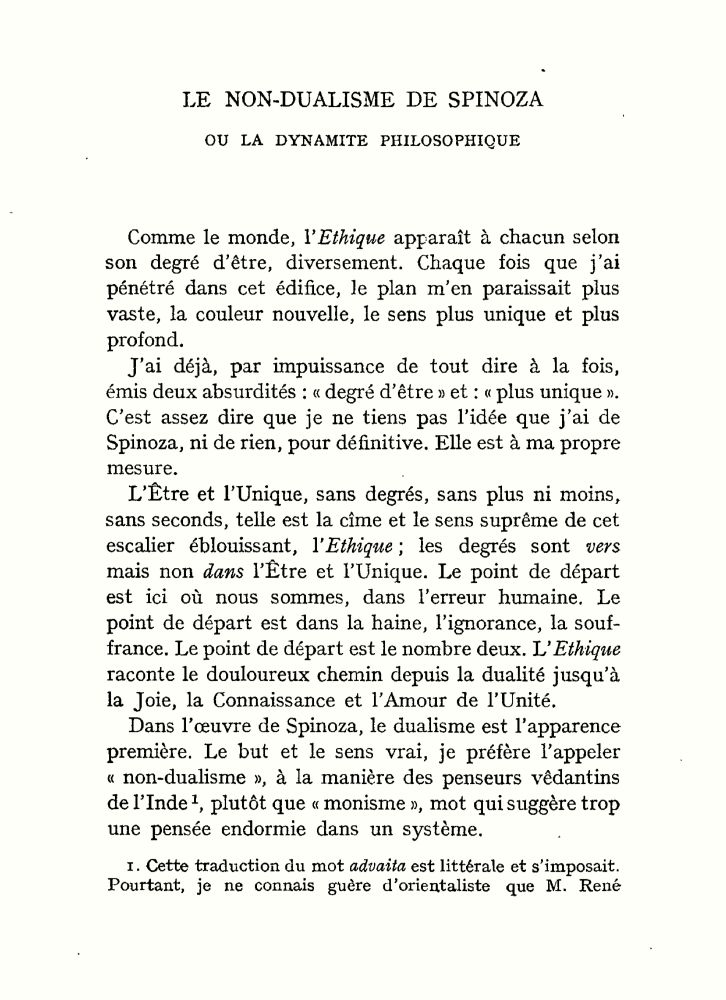
Le non-dualisme de Spinoza. Ou la dynamite philosophique, par René Daumal, La Nouvelle Revue Française Mai 1934 N° 248
«[Spinoza] mit dans son travail de philosophe les explosifs les plus puissants de sa sagesse aussi, à chaque théorème de l’Éthique les cadres de la philosophie purement spéculative éclatent un peu plus. Entre les lignes dorment les germes de cent révolutions»
— R Daumal
archive.org/details/la-n...
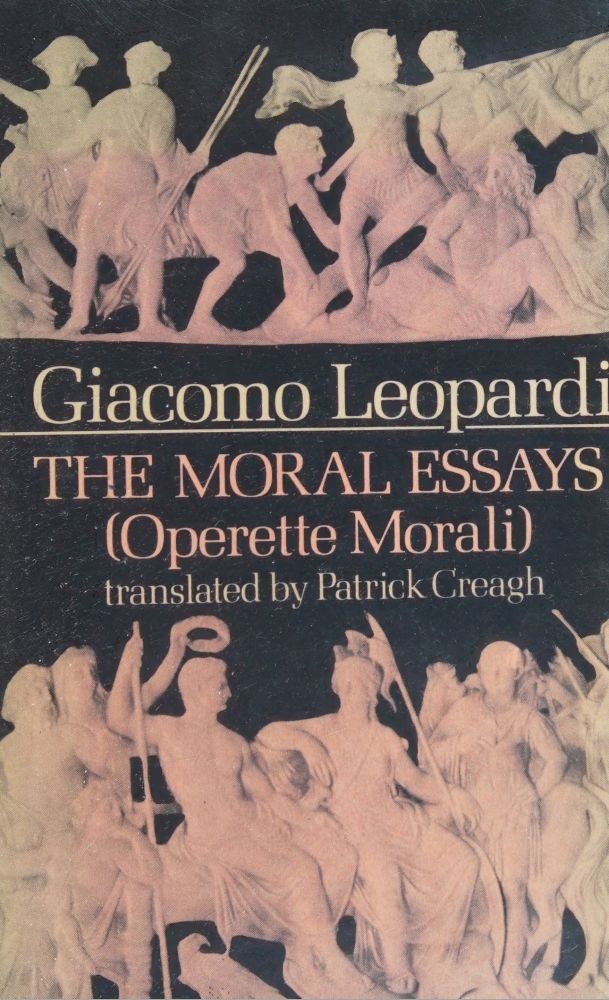
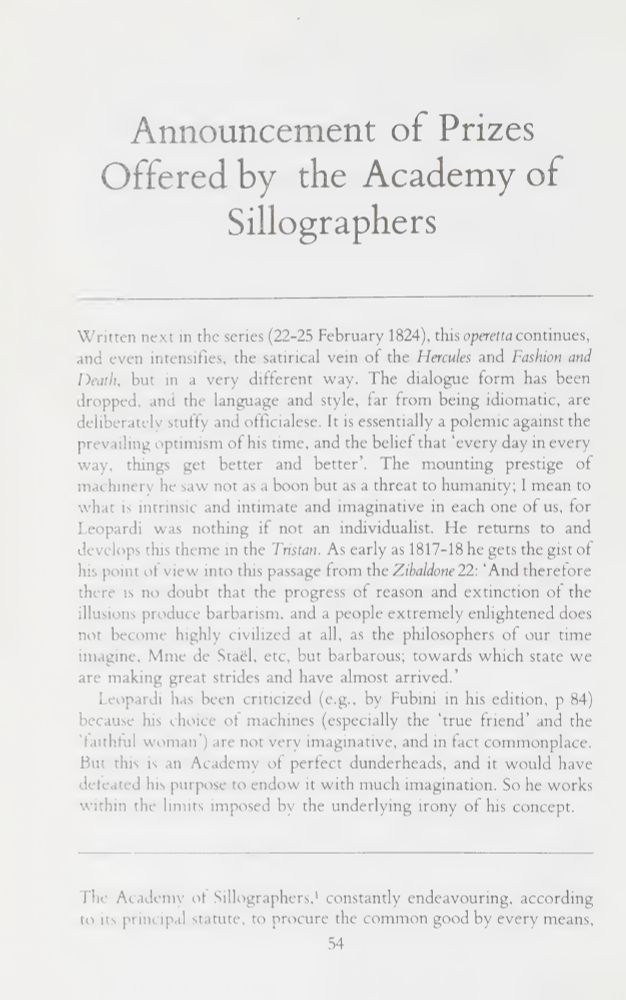
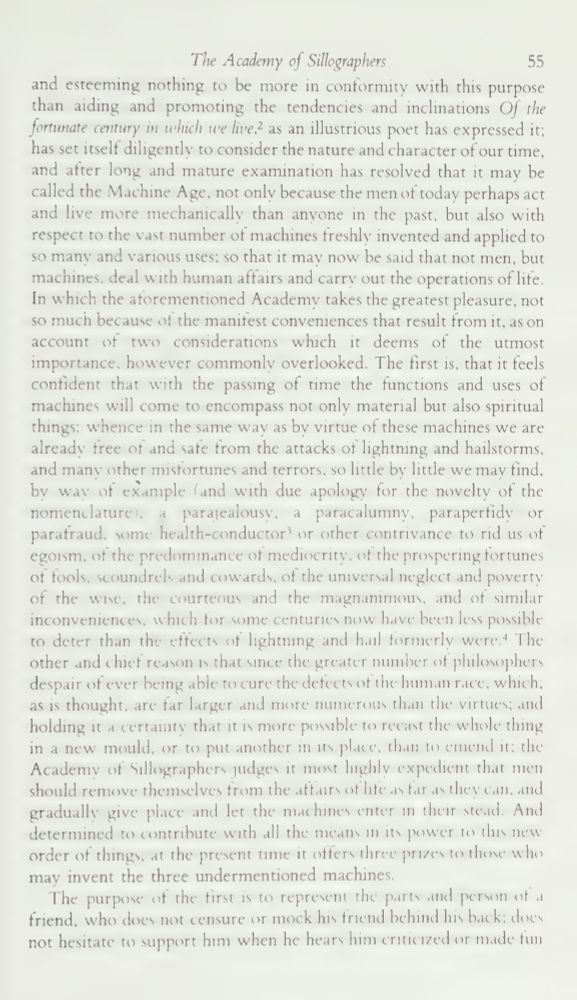
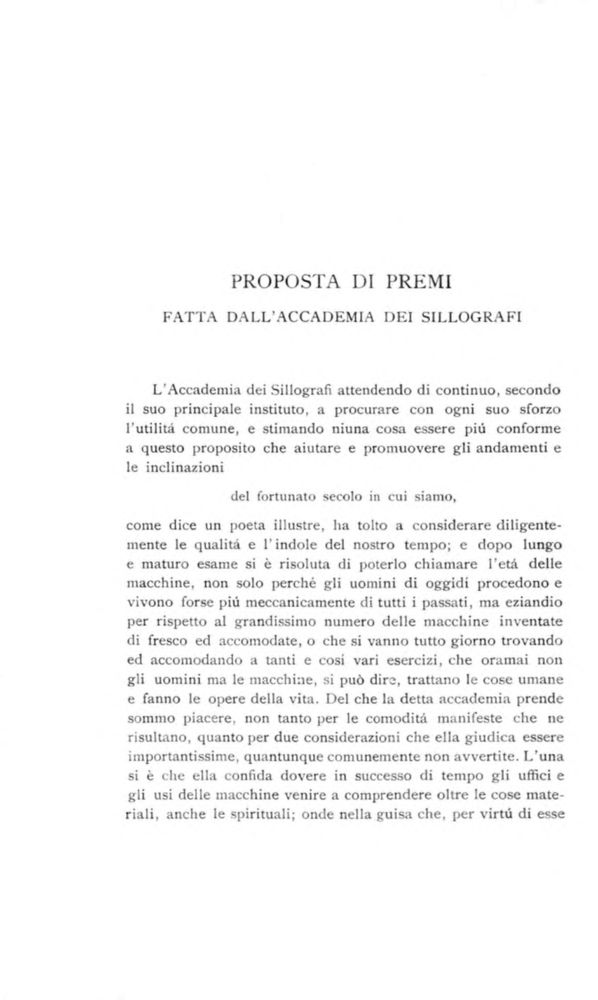
“[Our time] may be called the Machine Age, not only because the men of today perhaps act & live more mechanically than anyone in the past, but also [because] not men, but machines, deal with human affairs & carry out the operations of life”
— Giacomo Leopardi, Operette morali, 1824
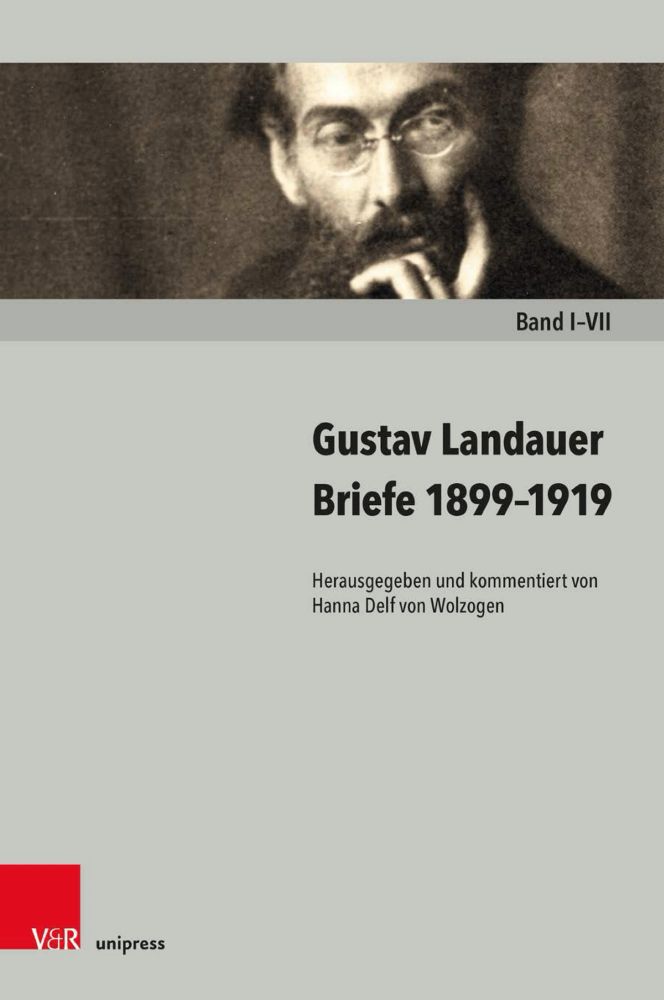
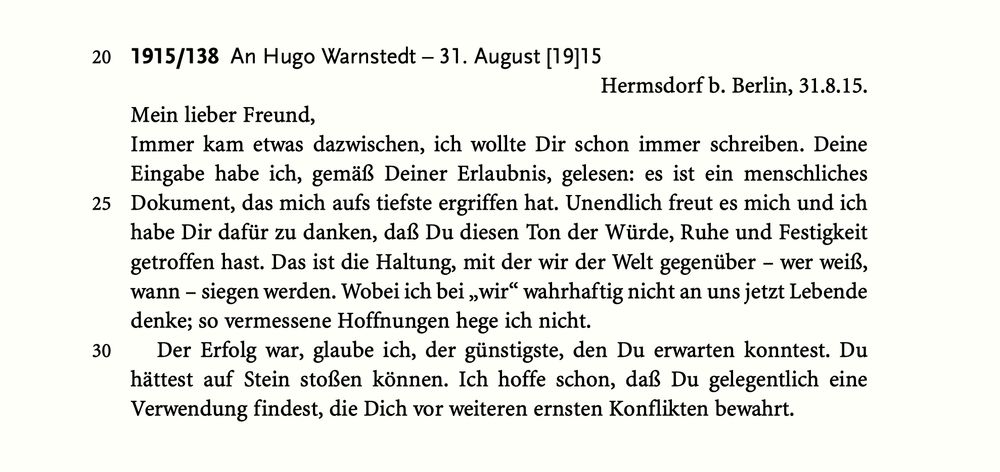
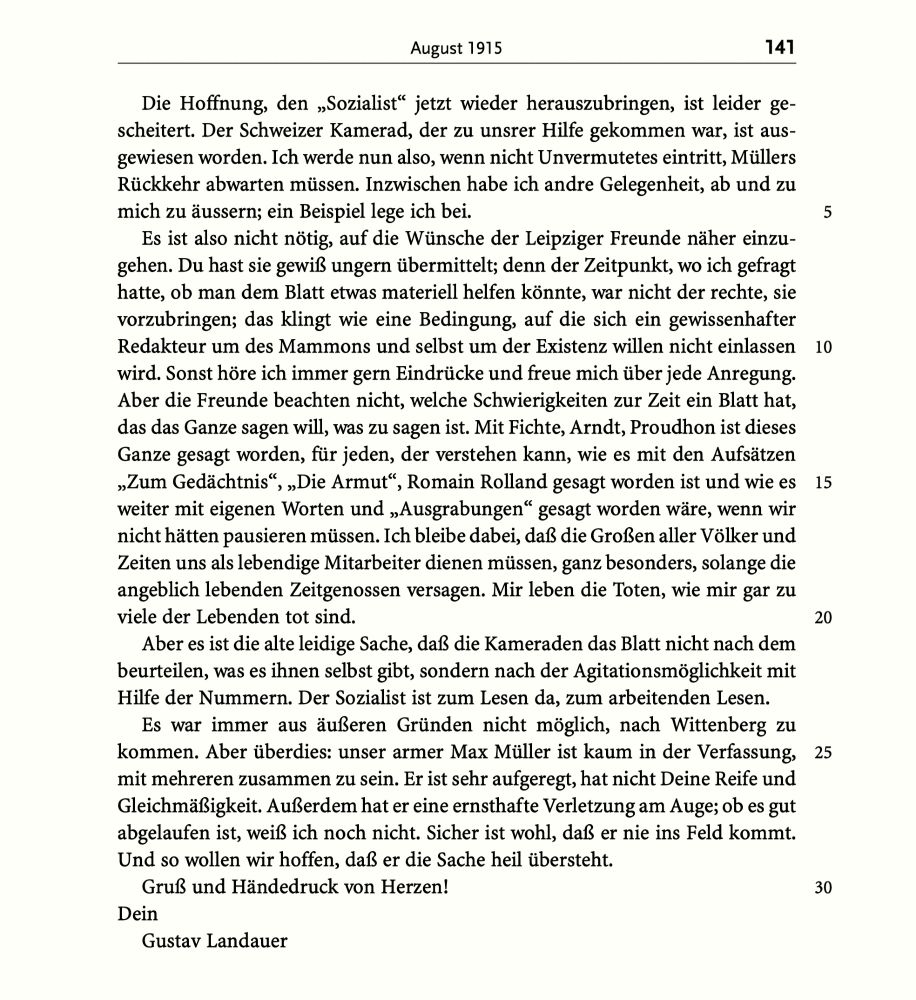

2/2 “Ich bleibe dabei, daß die Großen aller Völker und Zeiten uns als lebendige Mitarbeiter dienen müssen, ganz besonders, solange die angeblich lebenden Zeitgenossen versagen. Mir leben die Toten, wie mir gar zu viele der Lebenden tot sind.” — Gustav Landauer’s letter to Hugo Warnstedt, 1915-08-31
03.05.2025 21:03 — 👍 0 🔁 0 💬 0 📌 0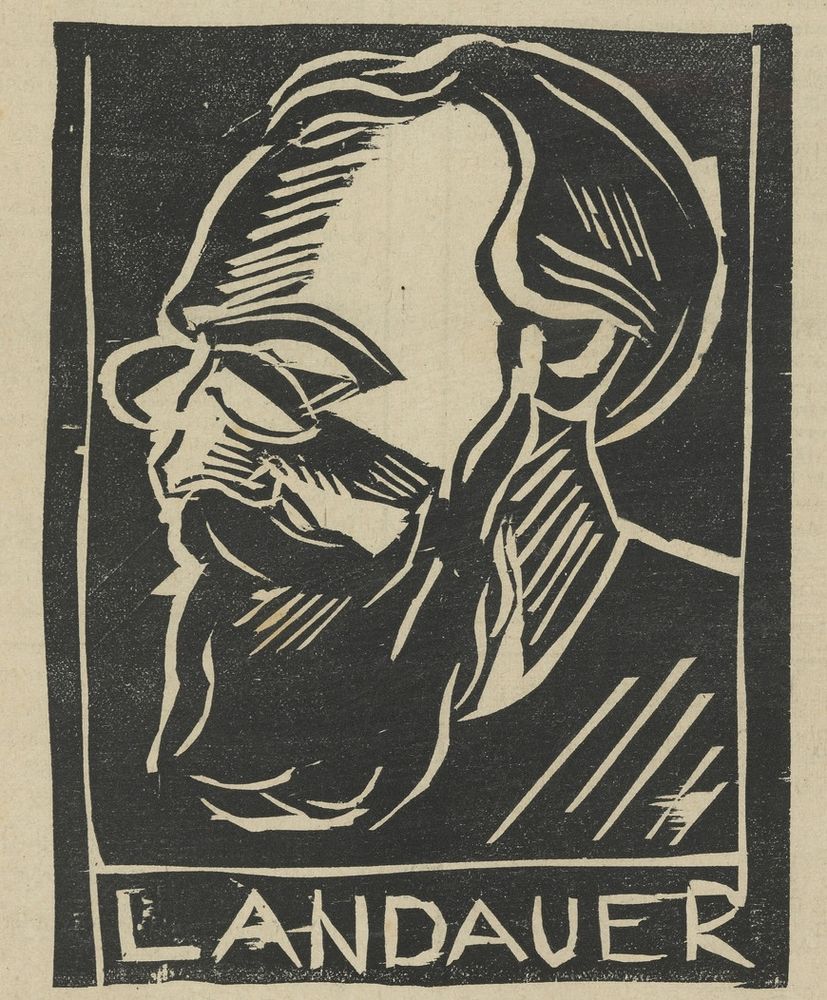
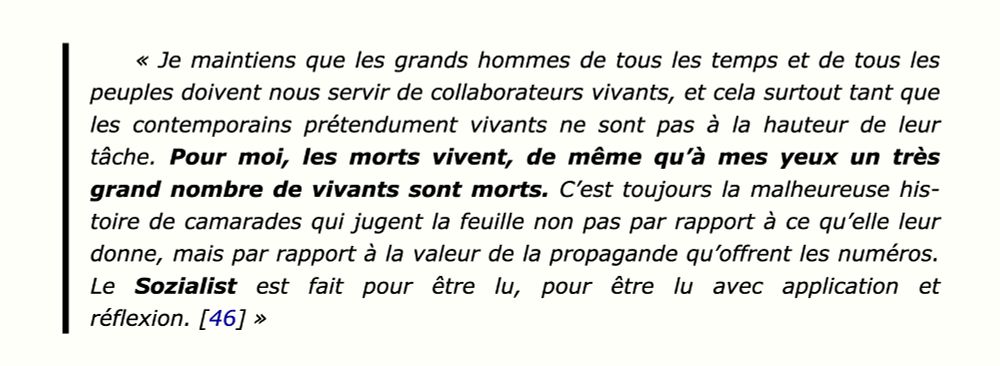
1/2 «Je maintiens que les grands hommes de tous les temps [...] doivent nous servir de collaborateurs vivants, et cela surtout tant que les contemporains prétendument vivants ne sont pas à la hauteur [...] Pour moi, les morts vivent, de même qu’à mes yeux un très grand nombre de vivants sont morts.»
03.05.2025 21:03 — 👍 0 🔁 0 💬 1 📌 0
Faculties of the Future
“[The university] admits no future beyond deadlines and student debt, and it harbors no expectations beyond the acquisition of the codes, keys, and cosmetics for entering and exiting the hegemonic market.”
— Willy Thayer, The Non-Modern Crisis of the Modern University, 2025, p. 35
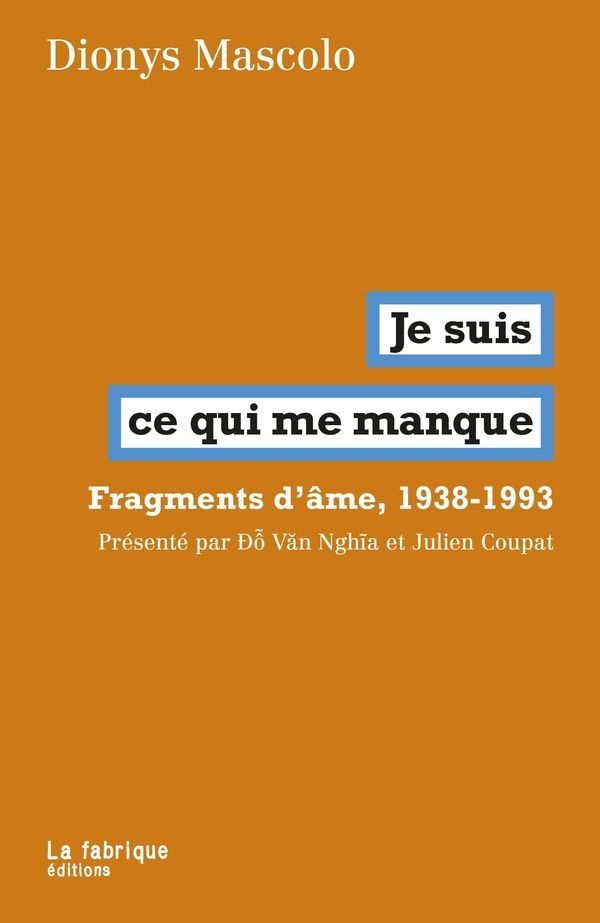
«Extraits des carnets qu'il a tenus durant soixante ans, de 1938 à sa mort en 1997, ces fragments dessinent une possibilité de vie à la hauteur de notre temps, tant la configuration existentielle de l'époque a peu changé depuis les années 1930» — Oct. 2025
www.arbrealettres.com/livre/978235...
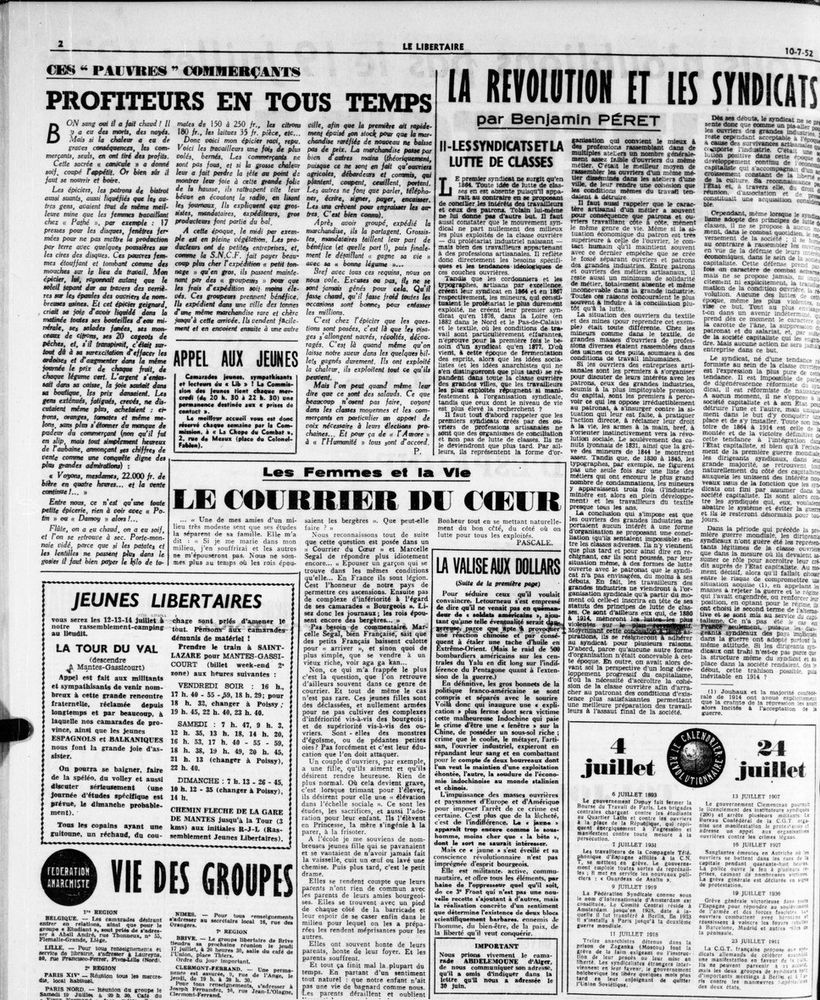
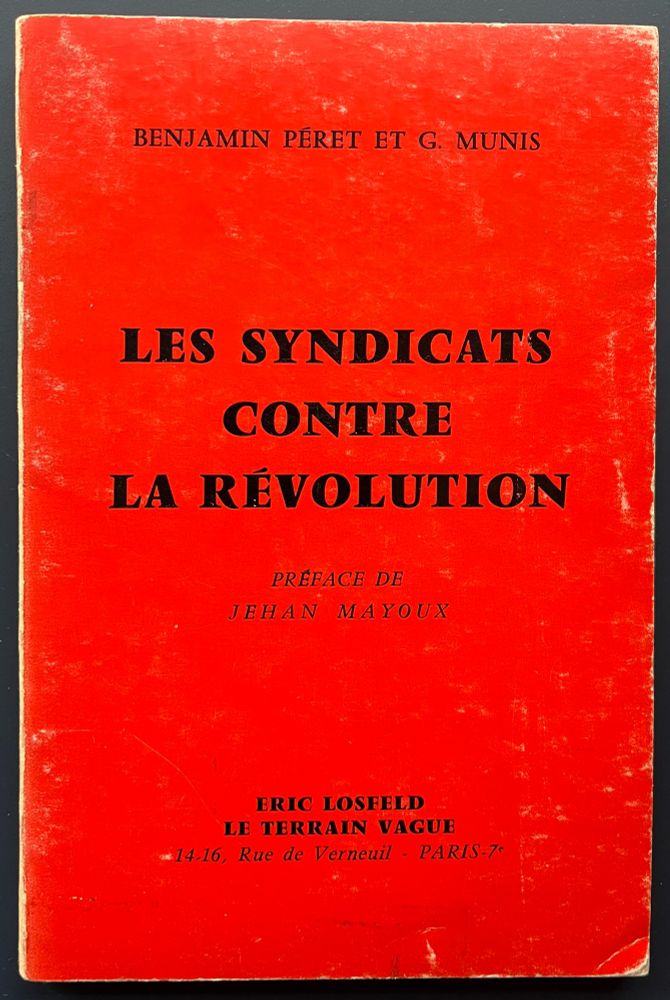
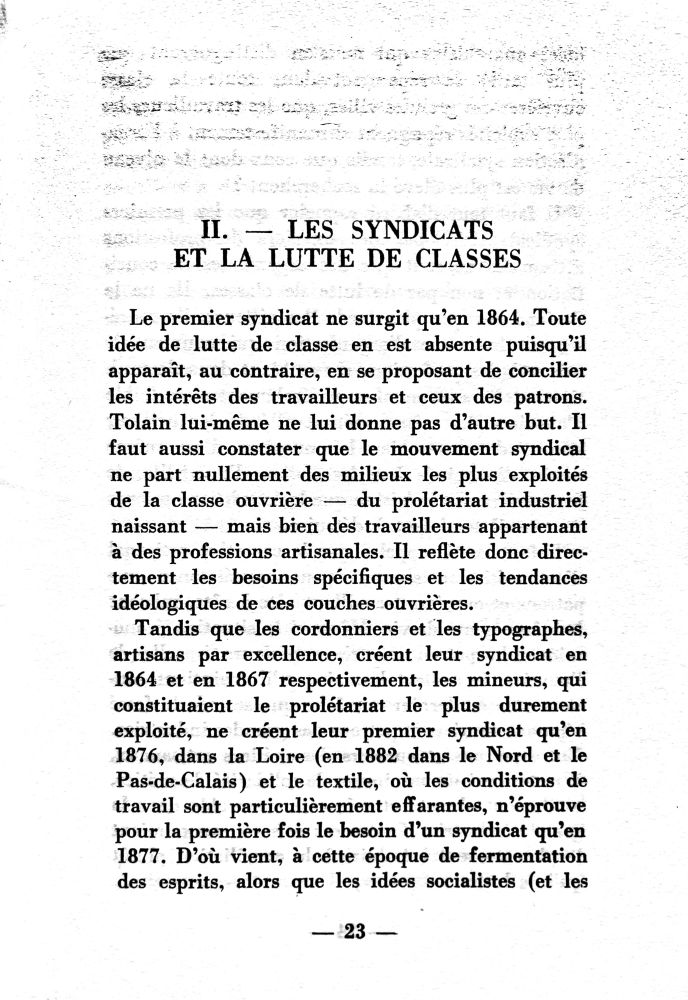
“The first union appeared only in 1864. Any idea of class struggle was alien to it, since it presented itself as proposing, on the contrary, to reconcile the interests of the workers and the bosses”
— Benjamin Péret Les syndicats contre la révolution
internationalistcommunists.org/2024/08/17/t...
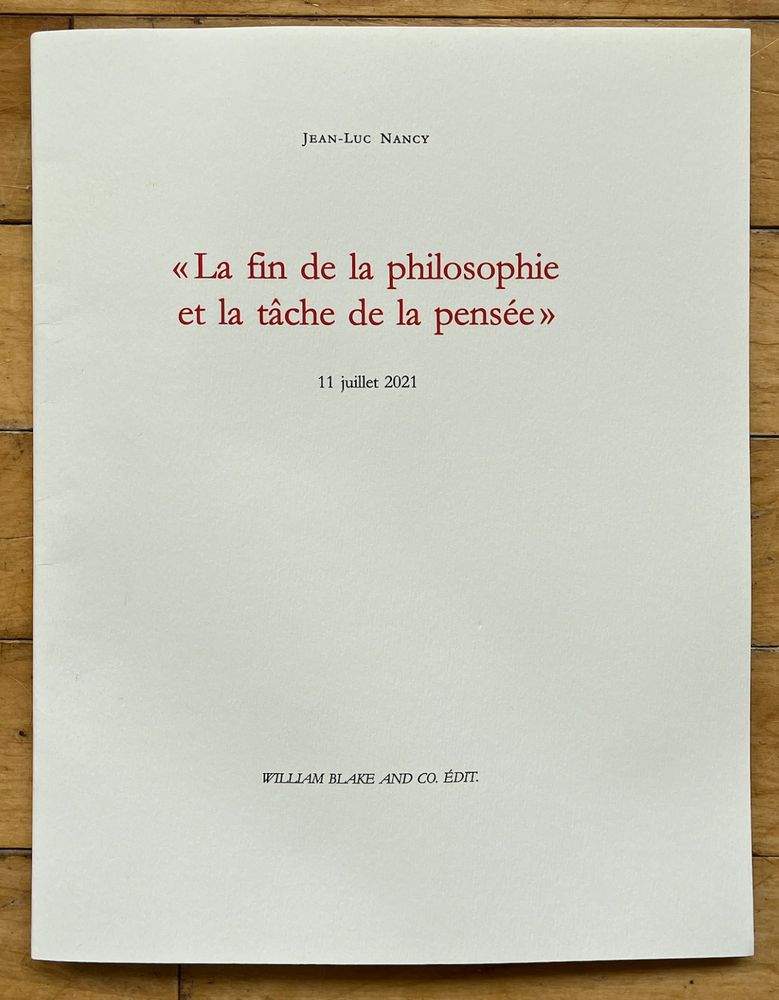
«Tous ces philosophes [...] souffrent de ce qu’ils savent manquer sans pour autant savoir ce que c’est, et surtout en doutant que ce soit quelque chose d’identifiable. Mais que cela manque et surtout qu’il ne suffit pas de dire “ça manque, c’est comme ça” [...], voilà ce qui importe.»
27.03.2025 14:54 — 👍 0 🔁 0 💬 0 📌 0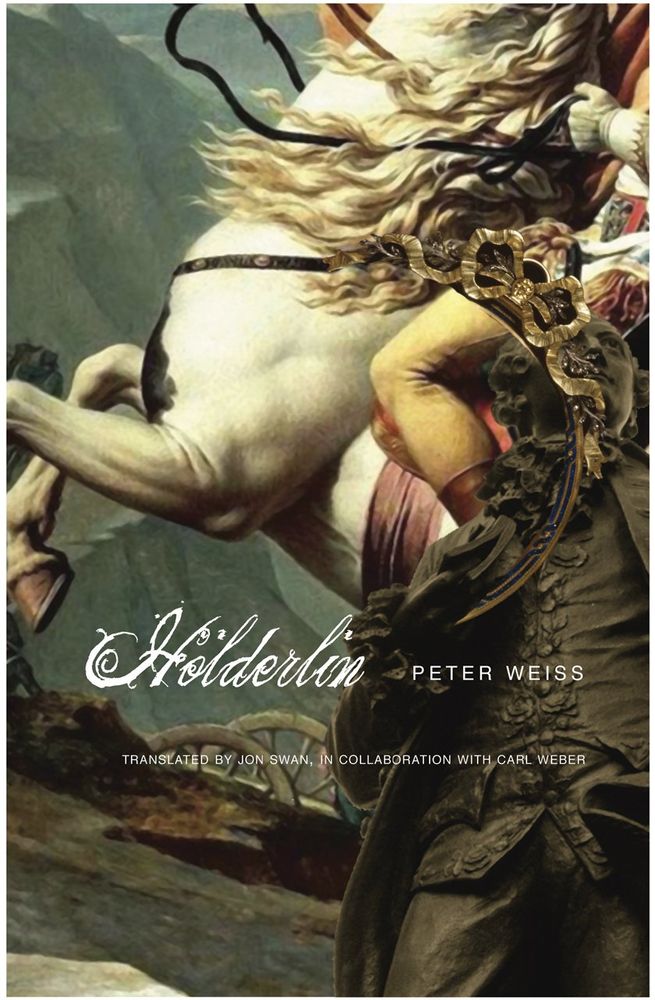
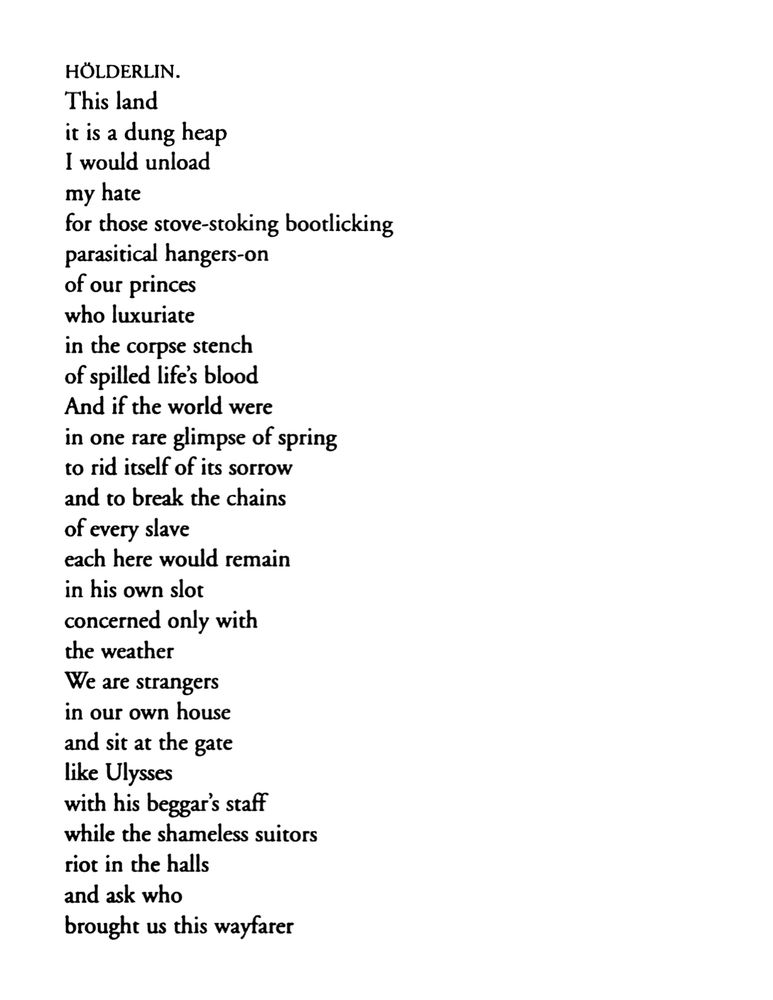
“This land it
is a dung heap
I would unload
my hate
for those stove-stoking bootlicking
parasitical hangers-on
of our princes
who luxuriate
in the corpse stench
of spilled life's blood”
— Peter Weiss, Hölderlin, tr. Jon Swan in coll. with Carl Weber, Seagull, 2010, pp. 120-121
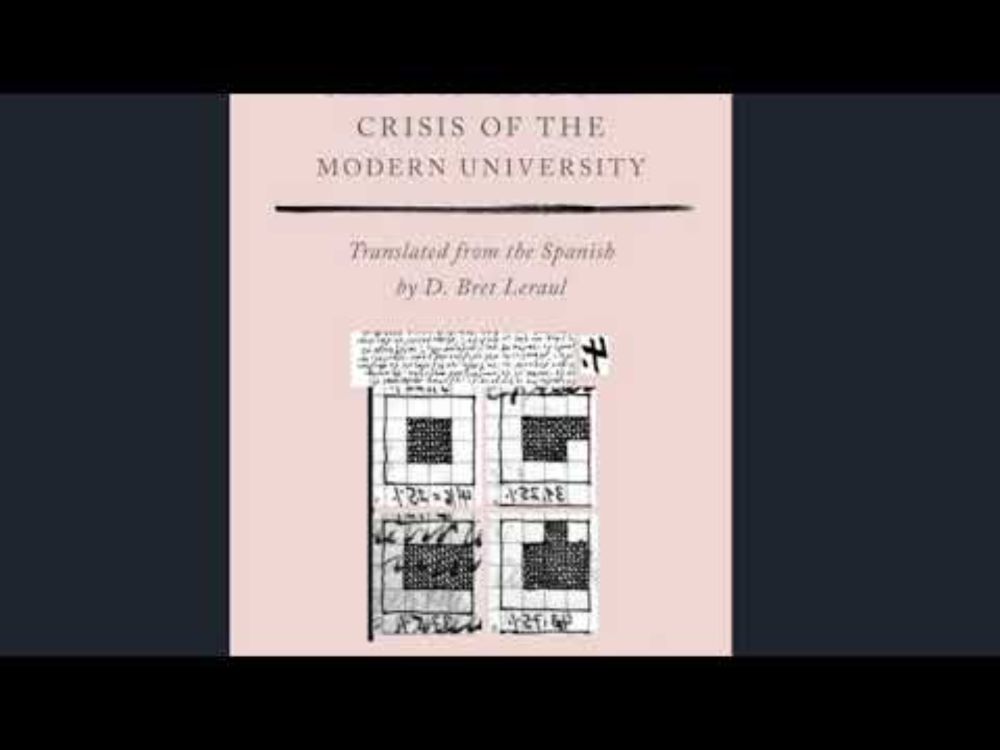
A roundtable with Willy Thayer about his book 'The Non-Modern Crisis of the Modern University,' originally published in Spanish in 1996, revised and expanded in 2019, and translated into English in 2025. An untimely book for an untimely crisis.
www.youtube.com/watch?v=b2-4...
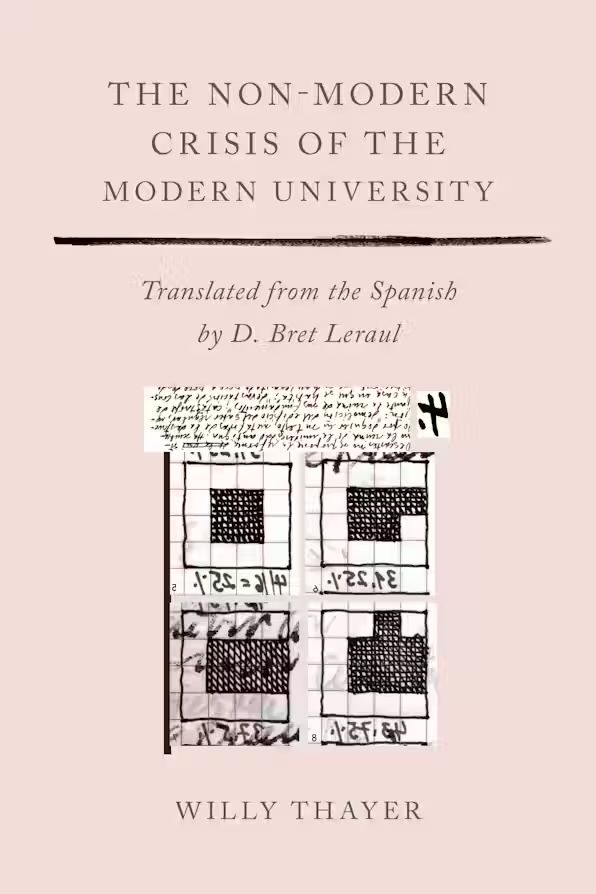
“today’s faculties of philosophy are pure actuality and zero potentiality when it comes to reading their conditions. Into oblivion with questioning the conditions of the present. Into oblivion with the question of being.”
— Willy Thayer, The Non-modern Crisis of the Modern University, 2025, p. 45
Thousand of pages from the Ernst Kantorowicz Collection are available on Internet Archive via the Center for Jewish History, part of Leo Baeck Institute Repository (LBI), including materials pertaining to the oath controversy.
archive.org/details/erns...

“Everyone can stop turning in the slavery of what he does not know and, refusing the payoff of empty words, have it out with life.”
Brief summary of a section of Carlo Michelstaedter’s dissertation 'Persuasion and Rhetoric'
aphelis.net/michelstaedt...
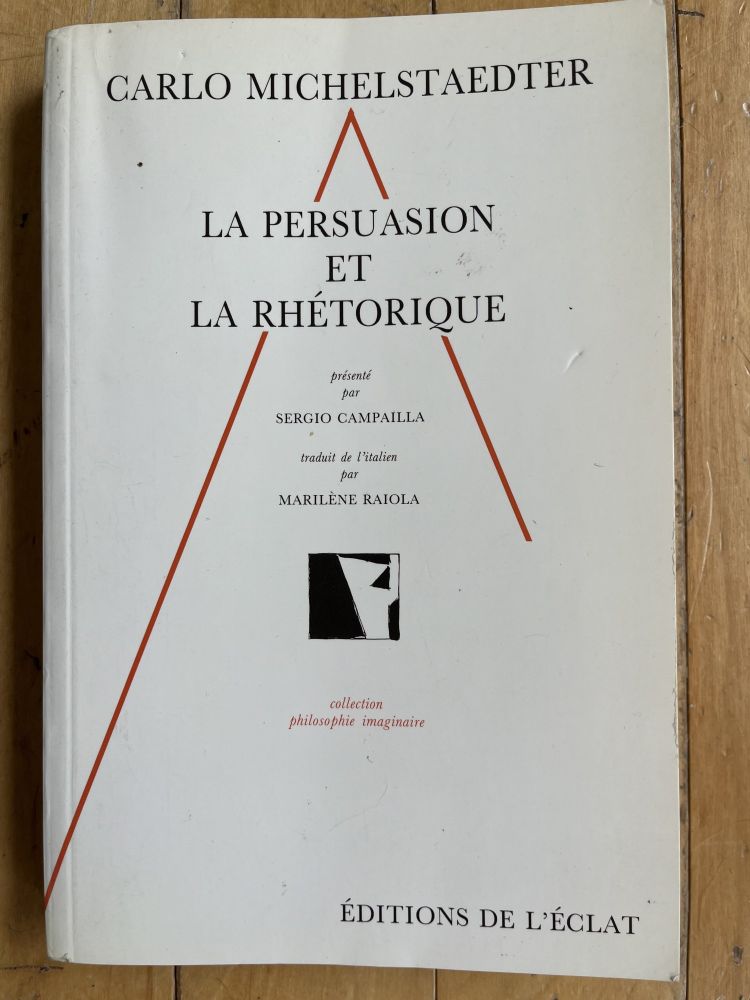
«C'est pourquoi toute voie tracée est une nouvelle mine, toute bannière un manteau qui recouvre l'insuffisance des pauvres et leur accorde une personne et un droit : — c'est pourquoi irrésistiblement fleurit la rhétorique.»
— Carlo Michelstaedter, La persuasion et la rhétorique, p. 123

“What is tomorrow, Anna? I once asked you 'How long will tomorrow last?' And you answered me: 'Eternity and a day.'”
— Theo Angelopoulos (27 April 1935 – 24 January 2012), Eternity and a Day (Μια αιωνιότητα και μια μέρα), 1998, 2:08:13
“Here he comes now, trying to act like a normal human being, but he is that most depised of human creatures. His activities have brought down upon his shoulders, the scorn and outrage of history's multitudes. He is homo bureaucratus: the bureaucrat... ”
www.youtube.com/watch?v=8g6y...

“The main problem with a riot is that all too easily it flips into a kind of negative intensity, that in the very act of breaking out of our commodity form we become more profoundly frozen within it.”
— Sean Bonney, Letters Against the Firmament, 2015, p. 8
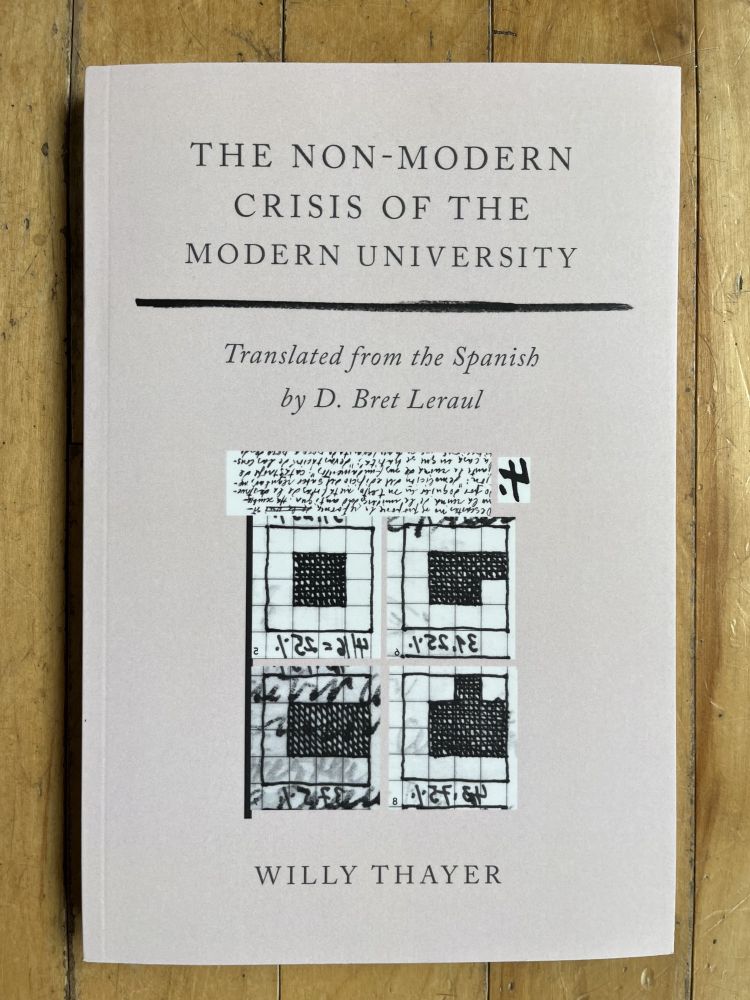
Cover image image for Willy Thayer’s The Non-Modern Crisis of the Modern University, translated by Bret Leraul, Northwestern University Press, 2025 by Willy Thayer
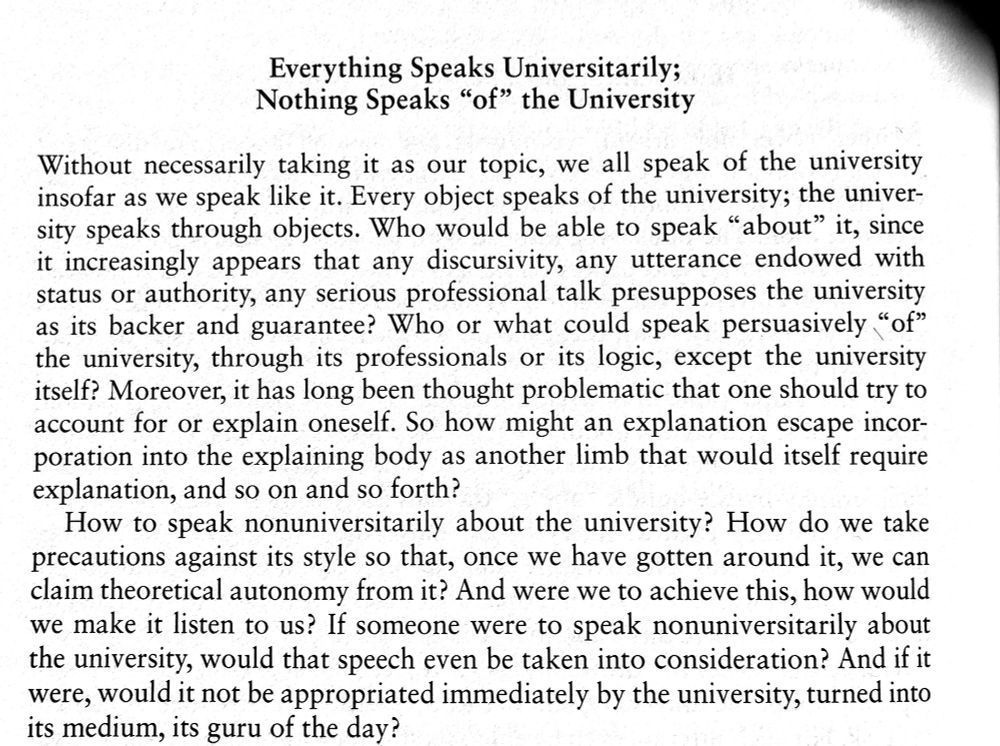
Image of page 38 of Willy Thayer’s The Non-Modern Crisis of the Modern University, translated by Bret Leraul (Northwestern University Press, 2025). It shows the text being quoted.
“If someone were to speak nonuniversitarily about the university, would that speech even be taken into consideration? [...] would it not be appropriated immediately by the university, turned into its medium, its guru of the day?”
— Willy Thayer, p. 38
nupress.northwestern.edu/978081014684...
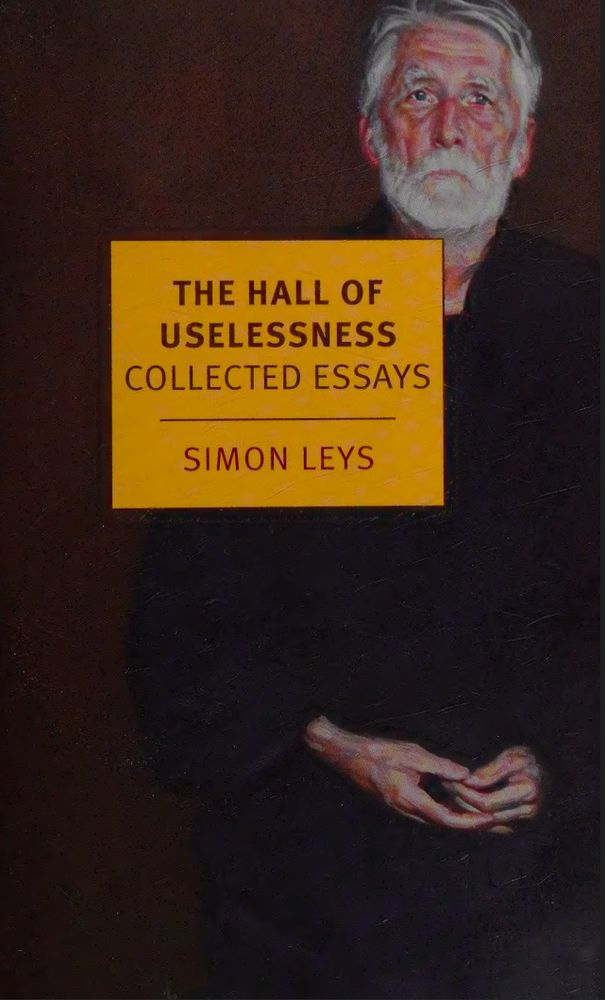
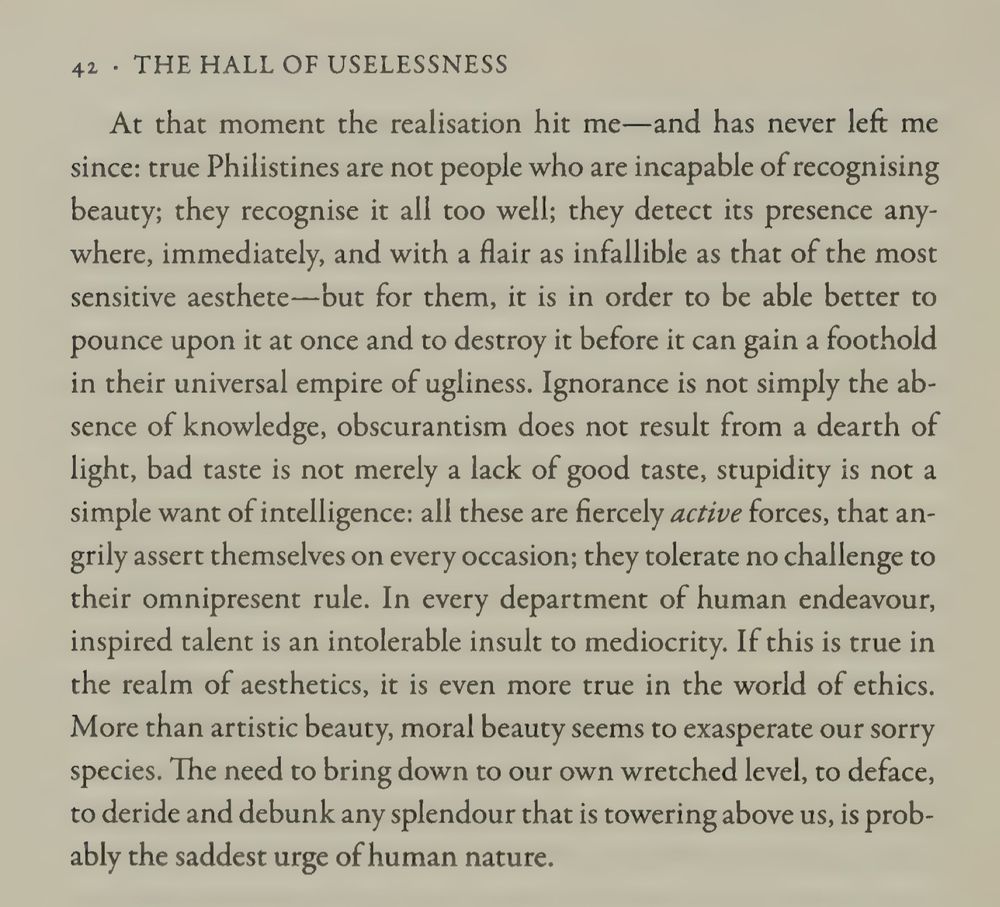
“In every department of human endeavour, inspired talent is an intolerable insult to mediocrity. If this is true in the realm of aesthetics, it is even more true in the world of ethics. More than artistic beauty, moral beauty seems to exasperate our sorry species. The need to bring down to our own wretched level, to deface, to deride and debunk any splendour that is towering above us, is probably the saddest urge of human nature.” Simon Leys, The Hall of Uselessness: Collected Essays, 2013, p. 42
“In every department of human endeavour, inspired talent is an intolerable insult to mediocrity. If this is true in the realm of aesthetics, it is even more true in the world of ethics. More than artistic beauty, moral beauty seems to exasperate our sorry species.”
— Simon Leys, 2013, p. 42
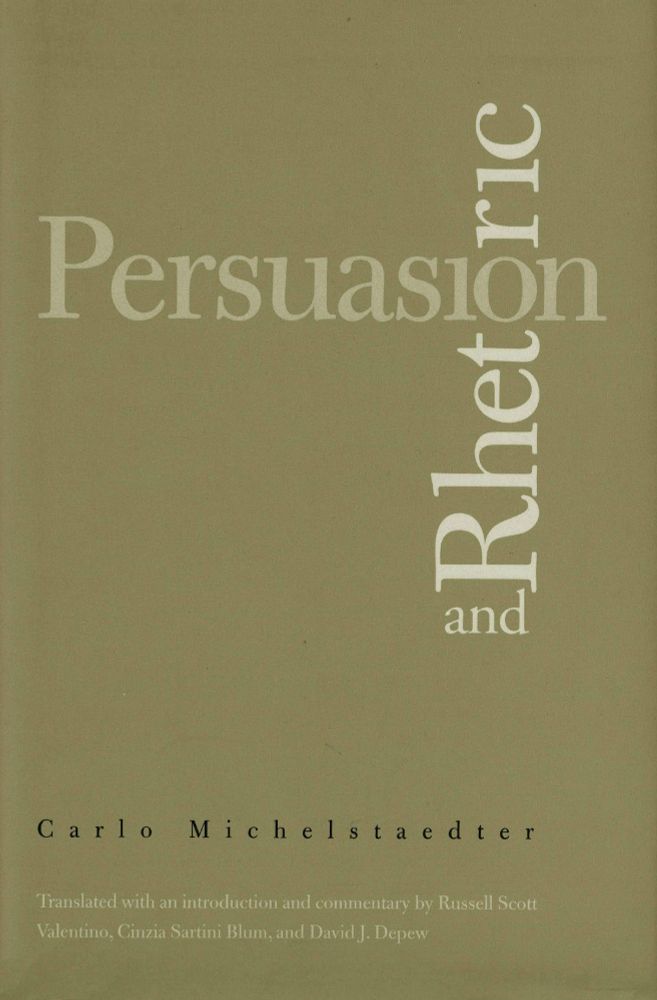
Cover image for Carlo Michelstaedter’s Persuasion and Rhetoric, Yale University Press, 2004
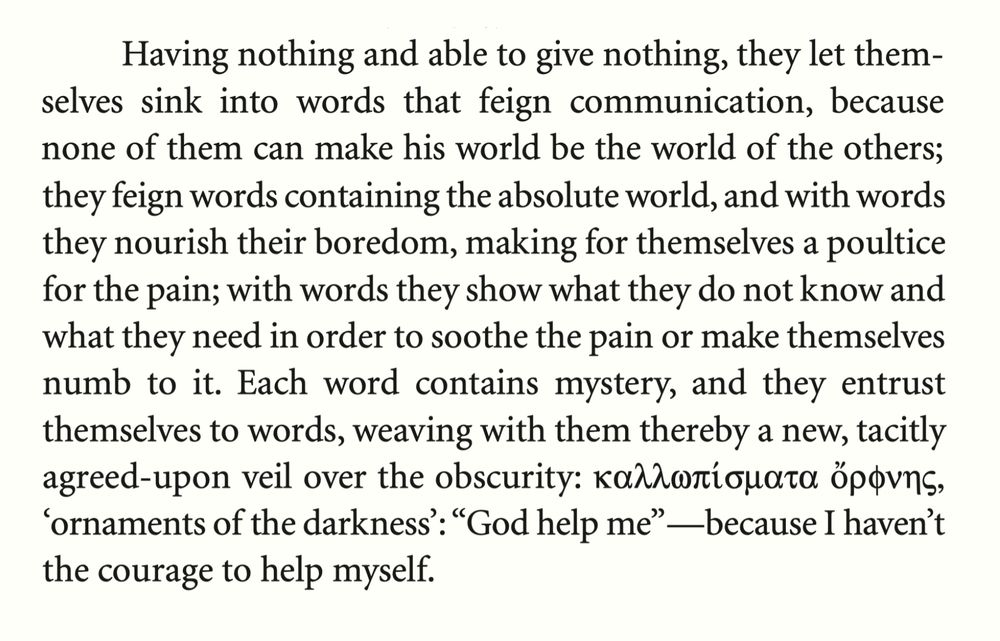
Except from the book Persuasion and Rhetoric by Carlo Michelstaedter, 2004, pp. 68-69. It reads: “Having nothing and able to give nothing, they let themselves sink into words that feign communication, because none of them can make his world be the world of the others; they feign words containing the absolute world, and with words they nourish their boredom, making for themselves a poultice for the pain; with words they show what they do not know and what they need in order to soothe the pain or make themselves numb to it. Each word contains mystery, and they entrust themselves to words, weaving with them thereby a new, tacitly agreed-upon veil over the obscurity: καλλοπίσματα ὄρφνης 'ornaments of the darkness': "God help me" —because I haven't the courage to help myself.”
“Each word contains mystery, and they entrust themselves to words, weaving with them thereby a new, tacitly agreed-upon veil over the obscurity: καλλοπίσματα ὄρφνης, ‘ornaments of the darkness’: “God help me”—because I haven’t the courage to help myself.”
— Carlo Michelstaedter, pp. 68-69